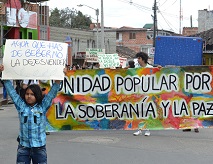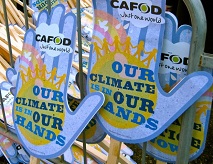
On the Front Lines of Hawaii’s GMO War
Source: Truthout
Malia Chun lives just blocks away from the beach on the western shores of the Hawaiian island of Kauai. On a sunny November morning, local activist Josh Mori drives Chun and I down the beach in his truck. Children are surfing and swimming in the waves as fisherman wait for a tug on their lines. Hawaiian beaches are known for their sparking blue waters, but Chun worries that the water lapping on the beach in her small town of Kekaha is polluted.
The nearby residential neighborhood is a “homestead” area that is reserved for people of native Hawaiian heritage and boasts one of the highest numbers of native speakers of any neighborhood in the state. Chun calls the homestead “a gem.” She runs a cultural enrichment program for native Hawaiian students at a local community college, and she moved with her two daughters, ages 7 and 11, to the homestead community six years ago. As we ride past the men and their fishing poles, Chun explains that some locals are subsistence fishermen and their families rely on what they catch. Chun says there are rumors among fisherman that the offshore reef, a crucial habitat for fish, is dying.


